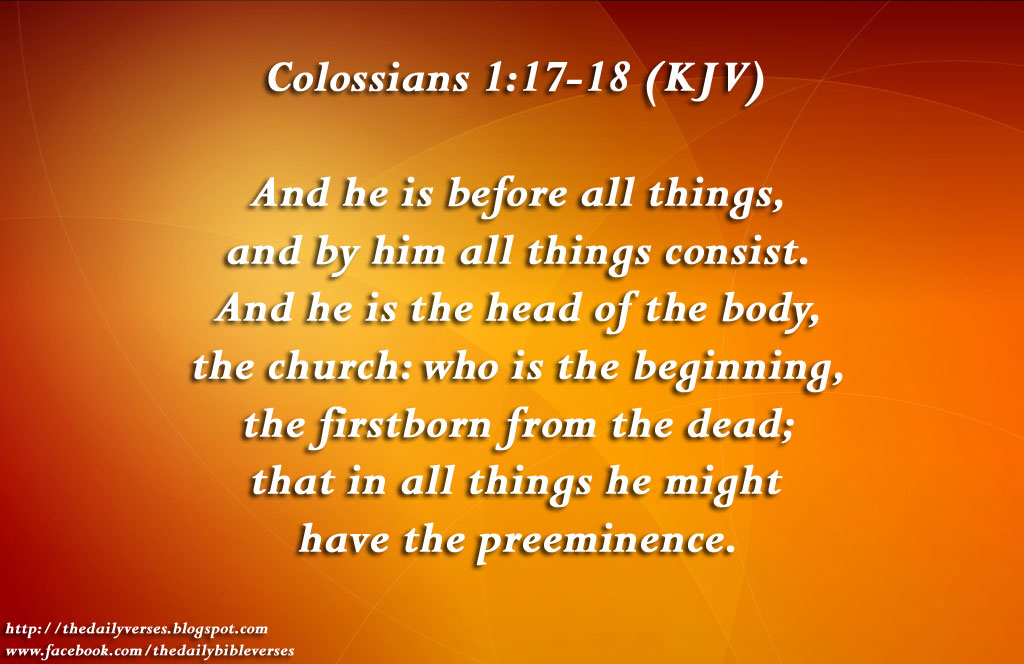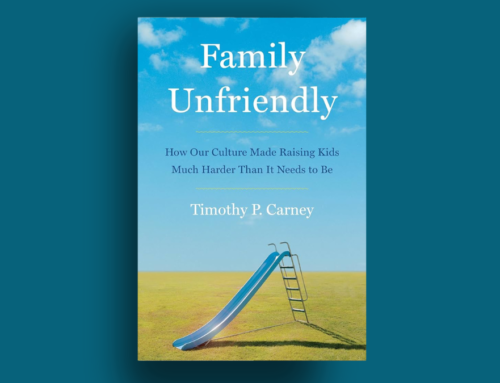“It is a sad day when the devil has a monopoly on our emotions and a corner on our enthusiasm. Sinners weep in theaters over the glycerin tears of Hollywood divorcees, but the Christians are ashamed to weep in church over a lost and dying world. I could take a dozen old-fashioned Christians who didn’t know but three or four things – but knew them-and go places for God while the average church member today is discussing ways and means or listening to the minutes of the last meeting.”
~Vance Havner
“What I believe about God is the most important thing about me.”
~A.W. Tozer
No Middle Ground
By A.W. Tozer
So throughout the entire New Testament a sharp line is drawn between the Church and the world. There is no middle ground. The Lord recognizes no good natured “agreeing to disagree” so that the followers of the Lamb may adopt the world’s ways and travel along the world’s path. The gulf between the true Christian and the world is as great as that which separated the rich man and Lazarus. And, furthermore, it is the same gulf, that is, it is the gulf that divides the world of ransomed from the world of fallen men.
I well know, and feel deeply, how offensive such teaching as this must be to that great flock of worldlings which mills around the traditional sheepfold. I cannot hope to escape the charge of bigotry and intolerance that will undoubtedly be brought against me by the confused religionists who seek to make themselves sheep by association. But we may as well face the hard truth that men do not become Christians by associating with church people, nor by religious contact, nor by religious education; they become Christians only by an invasion of their nature by the Spirit of God in the New Birth. And when they do thus become Christians they are immediately members of a new race, “a chosen generation, a royal priesthood, an holy nation, a peculiar people . . . which in times past were not a people, but are now the people of God: which had not obtained mercy, but now have obtained mercy” (1 Peter 2:9–10).
Verse
But you are a chosen people, a royal priesthood, a holy nation, a people belonging to God, that you may declare the praises of him who called you out of darkness into this wonderful light. 1 Peter 2:9
Thought
The gulf between the true Christian and the world is as great as that which separated the rich man and Lazarus.
Prayer
Give us the life of Your Spirit, Father, for only by that will we be saved.
The Wonders Of His Grace
by Pastor Paul M. Sadler
Scripture Reading:
“For ye know the grace of our Lord Jesus Christ, that, though He was rich, yet for your sakes He became poor, that ye through His poverty might be rich.”
— II Corinthians 8:9
Whether the occasion is a holiday, a birthday celebration, or a graduation, it is customary to give a gift. While some gifts are given out of necessity, for the most part, a gift is an expression of our love. We normally bestow these tokens of our affection on those whom we feel deserve the honor. But God’s ways are not our ways. He gave the gift of His beloved Son to His enemies. That’s a true love story! Oh, the wonder of His grace that God sent His only begotten Son, the Son of His love, to save sinners like you and me while we were fleeing from the glory of His presence. Little wonder the Apostle Paul says, “Thanks be unto God for His unspeakable gift” (II Cor. 9:15).
The word “unspeakable” here has the idea of “indescribable.” The gifts I’ve received through the years were all describable. Some may have been a little harder to describe than others, but describable nonetheless! But the gift of God’s dear Son is indescribable. Who can explain the incarnation, how the eternal Son of God left heaven’s glory and took upon Himself the form of human flesh, yet was not tainted with our sin. Who can explain how Christ was wholly God and wholly human in one person? These wonders can only be received through the eye of faith.
The manger and the Cross stand at the two extremes of our Lord’s life, but they are connected by the tapestry of redemption. Hence, “Christ Jesus came into the world to save sinners.” A love story that ends with a death is tragic; in contrast, the death of Christ is the greatest demonstration of love this world has ever seen. How much does God love you? He gave His only begotten Son to die on your behalf. You see, Christ wasn’t dying for His sin, He knew no sin; He was dying for your sins and my sins at Calvary. He was made sin for us that we might receive the righteousness of God in Him. Have you trusted Him?
Surely you would never think of paying for a gift; why, the giver would be highly offended — how much more so with God. The payment for your sins has already been furnished by the Giver; simply receive Him as a gift from God. If you have, then why not thank Him today for His unspeakable gift? After all, this is the Gift that includes all others!
Complete Opposite
By A.W. Tozer
The world’s spirit is strong, and it clings to us as close as the smell of smoke to our garments. It can change its face to suit any circumstance and so deceive many a simple Christian whose senses are not exercised to discern good and evil. It can play at religion with every appearance of sincerity. It can have fits of conscience (particularly during Lent) and even confess its evil ways in the public press. It will praise religion and fawn on the Church for its ends. It will contribute to charitable causes and promote campaigns to furnish clothing for the poor. Only let Christ keep His distance and never assert His Lordship over it. This it will positively not endure. And toward the true Spirit of Christ it will show only antagonism. The world’s press (which is always its real mouthpiece) will seldom give a child of God a fair deal. If the facts compel a favorable report, the tone is apt to be condescending and ironic. The note of contempt sounds through.
Both the sons of this world and the sons of God have been baptized into a spirit, but the spirit of the world and the Spirit who dwells in the hearts of twice-born men are as far apart as heaven and hell. Not only are they the complete opposite of each other but they are sharply antagonistic to each other as well. To a son of earth the things of the Spirit are either ridiculous, in which case he is amused, or they are meaningless, in which case he is bored. “But the natural man receiveth not the things of the Spirit of God: for they are foolishness unto him: neither can he know them, because they are spiritually discerned.”
Verse
The man without the Spirit does not accept the things that come from the Spirit of God, for they are foolishness to him, and he cannot understand them, because they are spiritually discerned. 1 Corinthians 2:14
Thought
Both the sons of this world and the sons of God have been baptized into a spirit, but the spirit of the world and the Spirit who dwells in the hearts of twice-born men are as far apart as heaven and hell.
Prayer
Help to never be bored with the Spirit life, Holy Father. Instead, give us the desire for more and more of Your Spirit.
Accepted
by Pastor Cornelius R. Stam
In Ephesians 1:6 the Apostle Paul sings a doxology, as it were, “to the praise of the glory of God’s grace, wherein He hath made us accepted in the Beloved”.
In the story of the Prodigal Son it is touching to see the father accept his wayward son back to his bosom — and so generously! He does not merely admit him back into his home; he clothes him with his best robe, puts a ring on his hand, shoes on his feet and kills for him the fatted calf so that they call all to “eat and be merry” in celebration of his return.
But the prodigal was after all the father’s son, whereas Paul bids us “Gentiles in the flesh” to remember that originally we were “without Christ…aliens from the commonwealth of Israel…strangers from the covenants of promise, having no hope and without God in the world” (Ephesians 2:12).
Hence it is even more touching to contemplate God’s gracious acceptance of us who were not sons but “aliens” and “enemies” (Colossians 1:21).
The word “accepted” in the above passage actually comes from the word “grace” (Greek – karis) with which the verse begins: “…His grace, wherein He hath engraced us in the Beloved One”.
Thus God looks upon us now with delight; He delights to favor and bless the believer because He sees him in Christ, His beloved Son.
This passage reminds us how God once broke through the heavens to declare: “This is My beloved Son, in whom I am well pleased” (Matthew 3:17). And now He is delighted with us and blesses us with “all spiritual blessings in the heavenlies” because we are in Christ, the “Beloved Son”. Not that we have attained to this position, far from it, for “HE hath MADE us accepted” — HE hath engraced us in the Beloved.
Eternal Reward
By A.W. Tozer
In the First Epistle of John two words are used over and over, the words they and ye, and they designate two wholly different worlds. They refers to the men and women of Adam’s fallen world; ye refers to the chosen ones who have left all to follow Christ. The apostle does not genuflect to the little god Tolerance (the worship of which has become in America a kind of secondary surface religion); he is bluntly intolerant. He knows that tolerance may be merely another name for indifference. It takes a vigorous faith to accept the teaching of the man John. It is so much easier to blur the lines of separation and so offend no one. Pious generalities and the use of we to mean both Christians and unbelievers is much safer. The fatherhood of God can be stretched to include everyone from Jack the Ripper to Daniel the Prophet. Thus no one is offended and everyone feels quite snug and ready for heaven. But the man who laid his ear on Jesus’ breast was not so easily deceived. He drew a line to divide the race of men into two camps, to separate the saved from the lost, those who shall rise to eternal reward from them that shall sink to final despair. On one side are they that know not God; on the other ye (or with a change of person, we), and between the two is a moral gulf too wide for any man to cross.
Verse
Do not love the world or anything in the world. If anyone loves the world, the love of the Father is not in him. 1 John 2:15
Thought
Tolerance may be merely another name for indifference.
Prayer
We assert, Father, that we are on Your side; we denounce this world and its temporal enticements.
Himself
By Vance Havner
By him all things consist.
Colossians 1:17.
The supreme experience is to get past all lesser experiences to Christ Himself. Most of us stop short of the Giver because we are forever seeking this or that gift. Many a saint can testify to years of being occupied with this doctrine and that, this blessing and that, but coming one day into the larger place of resting in the Lord Himself, finding in Him their reward, their portion. Anything short of that is fractional, immature, incomplete. We are complete in Him, not in any experience or favorite doctrine. Here is the experience that excels all experiences because it includes them all. The whole is greater than any of the parts.
“Getting through to God” is not a strange emotional experience-although it may indeed move the emotions—but simply arriving at the blessed point where we rest in the Blesser and not in a lesser “blessing.” Then, whatever we may lose, we have Him, and in Him we have everything. All things are ours, and we are Christ’s and Christ is God’s.
True Faith
By A.W. Tozer
In the First Peter verses quoted [in the previous devotion] there has been no wish to quote out of context nor to focus attention upon one side of truth to draw it away from another. The teaching of these passages is altogether one with all New Testament truth. It is as if we dipped a cup of water from the sea. What we took out would not be all the water in the ocean, but it would be a true sample and would perfectly agree with the rest.
The difficulty we modern Christians face is not misunderstanding the Bible, but persuading our untamed hearts to accept its plain instructions. Our problem is to get the consent of our world-loving minds to make Jesus Lord in fact as well as in word. For it is one thing to say, “Lord, Lord,” and quite another thing to obey the Lord’s commandments. We may sing, “Crown Him Lord of all,” and rejoice in the tones of the loud-sounding organ and the deep melody of harmonious voices, but still we have done nothing until we have left the world and set our faces toward the city of God in hard practical reality. When faith becomes obedience then it is true faith indeed.
Verse
We know that we have come to know him if we obey his commands. 1 John 2:3
Thought
It is one thing to say, “Lord, Lord,” and quite another thing to obey the Lord’s commandments.
Prayer
Turn our meager faith toward obedience, Kind Father, so that it may grow into true faith.
“In one way or another, many of us are “living in the ‘woulds’.” Consider the things some would do if they could. Beyond all the evil that is actually done, think how much more harm would be wrought if men dared or were not prevented. We quote figures on crime and juvenile delinquency, but no one knows how many more would do the same things if they thought they could get away with it. The depravity of the human heart is far deeper than statistics reveal; it boils up in thought and intention and desire. He who looks upon a woman in lust has committed adultery already in his heart. He would hates his brother and is a murderer. This is “living in the ‘woulds.’ ”
It works the other way. Paul would have visited the Thessalonian believers, but Satan hindered him. Some would have gone to the mission field, but could not. It was in their hearts to go and in God’s sight they really went. “For if there be first a willing mind, it is accepted according to that a man hath, and not according to that he hath not” (II Corinthians 8:12). What would you do if you could?
Of course, some could if they would. God had to overcome the reluctance of Moses and Jeremiah who were unduly modest and timid before their duty. We can do anything we ought to do. It is as wrong to underrate as to overrate ourselves when God calls us. To say that two and two make three is as wrong as to say two and two make five.”
~Vance Havner
Stand in Faith
February 6, 2015
“Say to him, ‘Be careful, keep calm and don’t be afraid. Do not lose heart because of these two smoldering stubs of firewood—because of the fierce anger of Rezin and Aram and of the son of Remaliah.’” — Isaiah 7:4
The Torah portion for this week is Yitro, which means “Jethro,” from Exodus 18:1–20:23, and the Haftorah is from Isaiah 6:1–13.
A 19th century Hasidic master once said, “Without God, a person can’t cross the street; but with God, a person can split the sea . . .” In other words, without God we can’t do anything, but through God all things are possible.
In this week’s Haftorah reading, the prophet Isaiah was commanded to deliver a message to Ahaz, king of Judea. Ahaz was distressed since the king of Israel had teamed up with the king of Aram against Judea. The message Isaiah delivered to him was this: “Be careful, keep calm and don’t be afraid. Do not lose heart because of these two smoldering stubs of firewood . . .” God assured Ahaz that his enemies would not be victorious over him. “It will not take place, it will not happen” (v. 7), God reaffirmed several verses later.
However, why the need for so many expressions for the same message? Couldn’t God have simply said, “Don’t be afraid”?
When Abraham was troubled in Genesis 15:1, God told him, “Do not be afraid, Abram. I am your shield . . .” When Isaac was worried in Genesis 26:24, God said, “Do not be afraid, for I am with you . . .” And twice in Jeremiah 46:27–28, God told his people, “Do not be afraid, Jacob my servant . . .” If it was enough for Abraham, Isaac, and the descendants of Jacob to simply hear, “Don’t be afraid,” then why wasn’t it enough for Ahaz?
To answer the question, we have to understand who Ahaz was. In short, he was one of the most wicked and ungodly kings to ever reign over Judea. For the believer who has a relationship with God, it’s enough to gently remind him or her not to fear. But the person who depends on his or her own strength and abilities suffers from more fear and needs more reassurance.
This was the case with Ahaz, who had pushed God away at every chance possible. Once a person is so distant from God, it’s hard to have the faith needed to get through hard times. A few verses later in Isaiah, the prophet put it this way: “If you do not stand firm in your faith, you will not stand at all” (v. 9). We need our faith to carry us through hard times. If we have cultivated a faith relationship with God all along, we’ll remember not to fear and that will be enough. However, if we ignore God’s presence in our daily lives, then our anxiety level will be such that getting to a place of trust will be extremely difficult.
Today, let’s cultivate our faith relationship with God. Let’s remember that God is the Source of our strength. Without Him we are nothing; with Him we can do anything!
With prayers for shalom, peace,
Rabbi Yechiel Eckstein
What Lack I Yet?
By Vance Havner
What lack I yet?
Matthew 19:20.
The rich young ruler had morals, manners and money. He would be welcomed readily into many churches today, with no questions asked. He would make a good “joiner,” but he would be a poor disciple.
Salvation is free but discipleship costs everything. Somehow, we have utterly lost sight of our Saviour’s drastic and often severe challenges to prospective disciples. Letting the dead bury the dead, denying self, hating loved ones, putting the hand to the plow—He used terms that demanded absolute obedience and unquestionable loyalty. Today we have tempered all this down and removed its sharp edge and have gathered a host of indifferent “joiners” who have not the faintest idea of what it means to “sell out” for Christ.
Jesus lost this prospect. The young man went away. Why didn’t our Lord take him on milder terms and later lead him into complete surrender? That is our techniques today, but Jesus was out for disciples, not “joiners.”
“What lack I yet?” Here is the painful lack in our churches, because it is the lack of so many of their members.
God Is in the Darkness
February 5, 2015
Moses said to the people, “Do not be afraid. God has come to test you, so that the fear of God will be with you to keep you from sinning.”
The people remained at a distance, while Moses approached the thick darkness where God was. — Exodus 20:20–21
The Torah portion for this week is Yitro, which means “Jethro,” from Exodus 18:1–20:23, and the Haftorah is from Isaiah 6:1–13.
When the children of Israel stood at Mount Sinai to receive God’s Word, they got a little more than they bargained for, including thunder, lightning, smoke, and a piercing trumpet blast! It was all a bit too much for the Israelites, and they trembled with fear for their lives. But Moses said to them, “Do not be afraid. God has come to test you, so that the fear of God will be with you to keep you from sinning.”
In other words, Moses was saying, “It’s just a test for your own good, so that you will fear God and stay away from sin.” Yet, the people were still afraid and “remained at a distance.”
Moses, however, did the opposite. He walked closer to God. In fact, the verse tells us that “Moses approached the thick darkness . . .” Moses kept walking even though the more he walked, the darker it became. Notice that the verse calls the darkness “thick;” this was no ordinary darkness. This was deep, impenetrable darkness. And yet, that dark place was “where God was.”
We all experience darkness in our lives. For some, it can be financial difficulties; for others, it can be outright poverty. For some people, it can be a seemingly irreparable marriage, and for others, it can be a painful relationship with a family member. We experience loss in life when we lose a loved one. We experience illness – our own or of those we cherish. In times like these, the darkness can feel impermeable.
But what is our reaction to all this darkness? How do we react to the fear, the confusion, the sheer terror of not knowing how things are going to turn out? Do we keep our distance from God? Or do we get closer to Him?
Many people are tempted to keep their distance. Going through dark periods can make us feel abandoned or rejected by God. But Moses teaches us an amazing lesson in these verses — God is in the darkness! Dark times are not the time to turn away from God – they are precisely the moment to draw closer to Him.
In Psalm 91:15, God said, “I will be with him in trouble.” God is with us in our most troubling times. It’s up to us to grab hold of Him and let Him carry us through.
When God created the world, first there was darkness and then there was light. First there was night, and then there was day. If you find yourself in a dark period right now, don’t be afraid. Do as Moses did and keep walking forward in faith. If you persevere, in that dark place is precisely where you will find God – and then there will be light.
With prayers for shalom, peace,
Rabbi Yechiel Eckstein
Terrible Zone of Confusion
By A.W. Tozer
That terrible zone of confusion so evident in the whole life of the Christian community could be cleared up in one day if the followers of Christ would begin to follow Christ instead of each other. For our Lord was very plain in His teaching about the believer and the world.
On one occasion, after receiving unsolicited and carnal advice from sincere but unenlightened brethren, our Lord replied, “My time is not yet come: but your time is always ready. The world cannot hate you, but me it hateth, because I testify of it that the works thereof are evil.” He identified His fleshly brethren with the world and said that they and He were of two different spirits. The world hated Him but could not hate them because it could not hate itself. A house divided against itself cannot stand. Adam’s house must remain loyal to itself or it will tear itself apart. Though the sons of the flesh may quarrel among themselves they are at bottom one with each other. It is when the Spirit of God comes in that an alien element has entered. “If the world hate you,” said the Lord to His disciples, “ye know that it hated me before it hated you. If ye were of the world, the world would love his own: but because ye are not of the world, but I have chosen you out of the world, therefore the world hateth you.” Paul explained to the Galatians the difference between the bond child and the free: “But as then he that was born after the flesh persecuted him that was born after the Spirit, even so it is now” (Galatians 4:29).
Verse
If the world hates you, keep in mind that it hated me first. John 15:18
Thought
That terrible zone of confusion so evident in the whole life of the Christian community could be cleared up in one day if the followers of Christ would begin to follow Christ instead of each other.
Prayer
Give us strength, Kind Father, to turn our backs on this world and to turn our hearts and minds completely to You.
How Small We Are!
by Pastor Cornelius R. Stam
Just behind me, in the supermarket check-out line, were two little boys. I noticed that the older one kept looking up at me and then down at his brother again several times in succession. Finally, nudging his little brother and pointing up at me, he said: “Hey, Joey, look how little you are!”
Those who have seen me in the flesh know that I am not exactly small, physically, and I can easily imagine that, standing next to these little fellows, I made them look small indeed!
But all this pertained only to the physical, and as I left that supermarket, I began asking myself: “How big are you, actually, in the sight of God?” I thought of Psalm 8:3,4, where David mused over the same question:
“When I consider Thy heavens, the work of Thy fingers, the moon and the stars, which Thou hast ordained; what is man that Thou art mindful of Him…?”
Yet we are so important to the heart of God that He entered the stream of humanity, as it were, and became one of us in Christ, Son of God and Son of Man. Why? Hebrews 2:14,15 gives us one important reason:
“…that through death [His death for our sins] He might destroy him that had the power of death, that is the devil, and deliver those who through fear of death were all their lifetime subject to bondage.”
Moreover, insignificant as we are in ourselves, He would use us mightily to His glory for, according to I Corinthians 1:27,28, He has “chosen” the “foolish,” the “weak,” the “base,” the “despised,” and those who “are not” to accomplish His purposes and to bring to naught the plans of the world’s great ones.
With God We Will Gain Victory
February 1, 2015
Give us aid against the enemy,
for human help is worthless.
With God we will gain the victory,
and he will trample down our enemies. — Psalm 60:11–12
Today is another wonderful day. There are blessings in store for us and beautiful moments to be shared. However, like all days, we also will face our fair share of challenges.
The big question is how will we deal with them?
The Jewish sages teach that our most powerful weapon against all destructive forces is the internalization of the words found in Deuteronomy 4:35: “. . . the LORD is God; besides him there is no other.” When we recognize that God is the most powerful force in the world at work, we can be assured a place under His protective wing. No harm can come to us and no person can damage us unless God allows it. When we fully believe that God is in control of every single thing, we merit His full and powerful protection.
Rabbi Isaac Soloveitchick, who survived World War II, describes how this verse literally saved his life. In his youth, he was instructed by his grandfather to remember the verse in order to receive divine protection. When things got bad for the Jews in Poland, the rabbi decided that it was time to escape from Warsaw to Vilna, Lithuania. With Nazis lurking everywhere, the roads were extremely dangerous for Jews, but the rabbi kept the verse in his head. Once, the rabbi’s thoughts strayed and suddenly there was a vicious Nazi headed his way with death in his eyes. Immediately, the rabbi collected his thoughts and remembered, “. . . the LORD is God; besides him there is no other.” Instantly and inexplicably, the Nazi disappeared and the rabbi was saved.
In Psalm 60, King David expressed the very same idea this way: “. . . human help is worthless. With God we will gain the victory . . .” When we shift our faith from human beings to God, we can experience miraculous protection and salvation.
The rabbis provide a telling analogy. Imagine you are confronted with a vicious dog. You might be frightened at first, but then you notice that the dog is attached to a leash and the leash is held by the dog’s owner. Now you feel safe, knowing that the situation is under control. In the same way, when we recognize that God is the owner of everything in the world, we can feel secure. Moreover, when we acknowledge that God “holds the leash,” so-to-speak – that He maintains control over everything in the world – we know that we are protected.
I want to encourage us to focus on God today, no matter what may come our way. Whether we face a dangerous situation or simply a difficult person at work, at home, or in the street, remember that God is in control and with His help “we will gain the victory.”
With prayers for shalom, peace,
Rabbi Yechiel Eckstein






















Leave a Reply, please --- thank you.